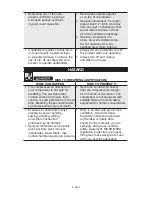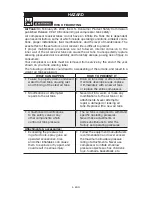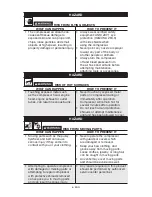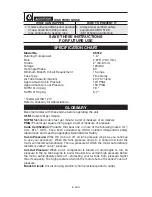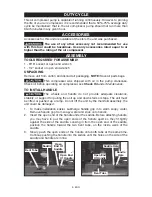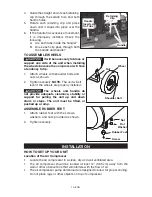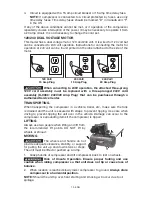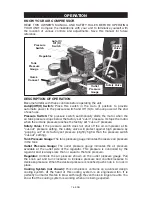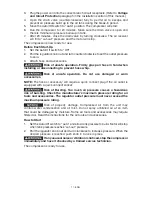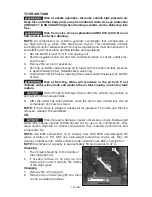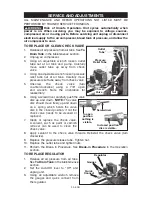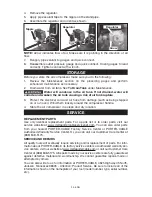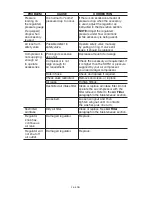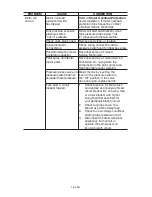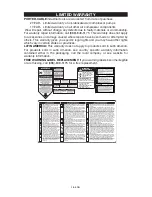
17 - ENG
3. Plug the power cord into the correct branch circuit receptacle. (Refer to
Voltage
and Circuit Protection paragraph in the
Installation
section of this manual.)
4. Open the drain valve (counterclockwise) fully to permit air to escape and
prevent air pressure build up in the air tank during the break-in period.
5. Move the Auto/Off switch to "Auto" position. The compressor will start.
6. Run the compressor for 20 minutes. Make sure the drain valve is open and
there is minimal air pressure build-up in tank.
7. After 20 minutes, close the drain valve by turning clockwise. The air receiver
will fill to "cut-out" pressure and the motor will stop.
The compressor is now ready for use.
Before Each Start-Up
1. Set the Auto/Off switch to "Off".
2. Pull the regulator knob out and turn counterclockwise to set the outlet pressure
to zero.
3. Attach hose and accessories.
Risk of unsafe operation. Firmly grasp air hose in hand when
installing or disconnecting to prevent hose whip.
Risk of unsafe operation. Do not use damaged or worn
accessories.
NOTE: The hose or accessory will require a quick connect plug if the air outlet is
equipped with a quick connect socket.
Risk of Bursting. Too much air pressure causes a hazardous
risk of bursting. Check the manufacturer’s maximum pressure rating for air
tools and accessories. The regulator outlet pressure must never exceed the
maximum pressure rating.
Risk of property damage. Compressed air from the unit may
contain wa ter condensation and oil mist. Do not spray un fil tered air at an item
that could be damaged by moisture. Some air tools and accessories may require
filtered air. Read the in struc tions for the air tools and accessories.
How to Start
1. Set the Auto/Off switch to "Auto" and allow tank pressure to build. Motor will stop
when tank pressure reaches "cut-out" pressure.
2. Pull the regulator knob out and turn clockwise to increase pressure. When the
desired pressure is reached push knob in to lock in place.
If any unusual noise or vibration is noticed, stop the compressor
immediately and have it checked by a trained service technician.
The compressor is ready for use.

